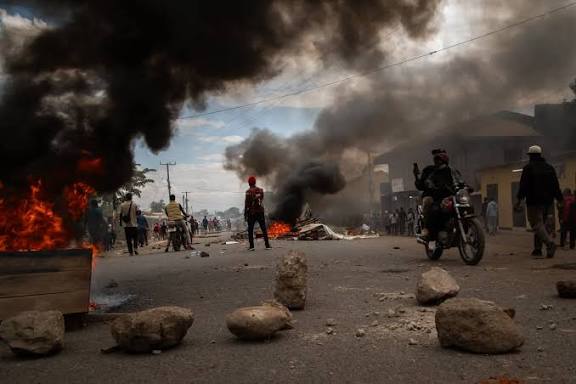Tanzania has been thrown into turmoil following reports of mass killings during the country’s recent general election, as a small circle of hardliners reportedly consolidates power around President Samia Suluhu Hassan.

Images of slain civilians flooded social media after the October 29 polls, which saw President Hassan claim victory with 98 percent of the vote. Opposition candidates were either jailed or barred from running, and protests erupted nationwide amid allegations of fraud and repression.
According to opposition figures, more than 1,000 protesters were killed as security forces violently crushed demonstrations under the cover of a five-day internet blackout. The government has yet to release an official death toll.
UN Human Rights Chief Volker Turk expressed alarm at reports of bodies being secretly removed from hospitals and streets “to conceal evidence.”

A senior government official, speaking anonymously, said they were “horrified” by the events and revealed possible mass grave sites near Dar es Salaam — at Kondo and Mabwepande — though these claims remain unverified.
Insiders describe a “tiny cabal” of loyalists now controlling key state institutions and security agencies. Those allegedly at the center include the president’s son Abdul Halim Hafidh Ameir, private secretary Waziri Salum, intelligence chief Suleiman Abubakar Mombo, and Angela Kizigha, a little-known East African parliament member.
“It’s unprecedented and very un-Tanzanian,” said a former presidential advisor. “Everyone else has been frozen out.”
Witnesses recounted seeing security forces shoot civilians at close range in Dar es Salaam on election day, with others executed in the streets in the days that followed.

Before the polls, rights groups had already documented dozens of abductions. The Tanganyika Law Society confirmed at least 83 disappearances under Hassan’s rule, with many more reported as the election neared.
Critics accuse the president’s son of overseeing a private militia responsible for kidnappings and intimidation. The government denies these claims and has not commented on the alleged killings.
President Hassan, who rose to power after John Magufuli’s death in 2021, was initially praised for loosening restrictions on the opposition and press. However, analysts say her administration has since become more repressive than her predecessor’s.

Observers warn that the violence and political fear gripping Tanzania mark a dark new chapter for the East African nation.
“What’s clear,” said one government insider, “is that Tanzania will never be the same again.”



